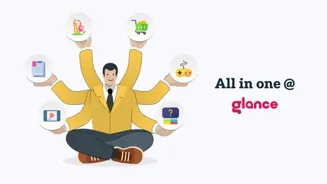Unraveling Productivity Myths: Discover how common misconceptions hinder efficiency & uncover strategies for real results. Read on for a productive transformation!
In today's fast-paced world, everyone
is looking for that secret sauce to boost productivity. We're bombarded with tips and tricks, but often, these are based on myths rather than solid strategies.

Let's bust some of these common productivity myths and discover what truly works to enhance your efficiency. Understanding the real deal can help you ditch the unproductive habits and embrace methods that actually get results. After all, working smarter, not harder, is the key!
The Idea
Juggling multiple tasks at once shows you're efficient and can handle anything.
The Reality
Multitasking is actually a productivity killer. Our brains aren't wired to focus on multiple things simultaneously. Instead, we rapidly switch our attention between tasks, which slows us down and increases the likelihood of errors.
It might feel like you're accomplishing more, but research shows that multitasking reduces overall efficiency by as much as 40%. Stop thinking multitasking is useful and harmful for our body. It increases stress and anxiety which affect our daily performance.
Avoid multitasking if you want more performance.
Instead
Practice single-tasking. Focus on one task at a time, giving it your full attention. This not only improves the quality of your work but also reduces the time it takes to complete each task. Block out distractions, close unnecessary tabs, and dedicate specific time slots for specific activities.
You'll be surprised at how much more you can accomplish when you're truly focused. Also, doing one thing at a time reduces our mental stress level and we can get free time for our own personal enjoyment. This way we can enjoy our work along with our personal life.
The Reality
This is a recipe for burnout. Working excessive hours without breaks leads to fatigue, decreased concentration, and ultimately, lower productivity. Studies have shown that productivity drops significantly after a certain point, usually around 50-55 hours a week.
So, pushing yourself to work longer hours can actually have the opposite effect, making you less efficient and more prone to mistakes. Working smart is more preferable , because doing more hours reduces performance. When we are tired we often make mistakes, these mistakes are not good for work.
Instead
Prioritize smart work over long hours. Focus on the most important tasks and make the most of your time during working hours. Take regular breaks to recharge your mind and body.
Use techniques like the Pomodoro Technique (working in focused bursts with short breaks) to maintain concentration and prevent burnout. Remember, quality over quantity applies to work as much as anything else. You should go to bed as scheduled and should not stay up the whole night.
Enjoy your personal life too along with work.
The Idea
Being reachable 24/7 makes you responsive and efficient. This way you get to know immediately new things.
The Reality
Constant notifications are a major distraction. Each time you get an email, message, or social media alert, it interrupts your focus and pulls you away from your task. Studies show it can take up to 23 minutes to regain full focus after an interruption.
This means you're losing valuable time and energy every time you check your phone or email in response to a notification. Checking notifications constantly is harmful for your productivity. Avoid using these kinds of social media platforms on working time.
Instead
Schedule specific times for checking emails and messages. Turn off notifications during focused work periods. Let people know when you're available and when you need uninterrupted time to concentrate. This allows you to stay informed without being constantly bombarded with distractions.
By controlling your notifications, you can reclaim your focus and significantly boost your productivity. Constant distractions are not good at work they also create confusion. It is also bad for mental health also if used for longer time.
The Idea
Accepting every task that comes your way demonstrates dedication and willingness.
The Reality
Overcommitting yourself leads to overwhelm and decreased quality of work. When you say 'yes' to everything, you spread yourself too thin and end up not being able to give your best to any task. This can result in missed deadlines, subpar work, and increased stress.
It can also lead to burnout and resentment. You cannot be an expert at everything and some things should be said No. When we say Yes to everything then there may be a problem in completing tasks.
Instead
Learn to prioritize and say 'no' when necessary. Assess your workload and capabilities realistically. Don't be afraid to delegate tasks or suggest alternative solutions if you're already overloaded.
Saying 'no' protects your time and allows you to focus on what truly matters, improving the quality of your work and your overall productivity. We should be happy and healthy at work this will benefit our personal life too. Focus should be to improve health and happiness.
The Reality
Striving for perfection is often a form of procrastination. It can lead to spending excessive time on minor details, delaying project completion, and increasing stress. Perfectionism can also paralyze you with fear of failure, preventing you from even starting tasks.
Perfect things don't exist and if you are not moving on then you will not achieve good things in your life.
Instead
Aim for excellence, not perfection. Accept that mistakes are a part of the learning process. Focus on completing tasks to a high standard, but don't get bogged down in unnecessary details. Set realistic deadlines and celebrate progress, not just perfect results.
Embrace the concept of "good enough" and move on to the next task. Improve your mental and physically health along with excelling.
Detailed planning ensures efficiency and problem-solving
The idea: planning everything to smallest detail will eliminate all problems and makes you efficient.
Over planning leads to procrastination, balance is key
The reality: over planning may lead to procrastination. When you over plan, you waste time on things that are important. You may also be feared to fail, so it is important to balance your plan. Planning everything from top to bottom is impossible because problems may appear out of nowhere.
Instead
Start from a simple plan, then move on based on current situation. It is useful to take risks sometimes, but you should consider the consequences too. Also you should seek for more knowledge consistently, reading books is a great way to gain knowledge.
Learning should never stop, because improvement never stops from our lives.
Productivity increases in office work setting
The idea: you can only increase productivity when working at the office.
The reality
Productivity can be increased from variety of places. Some people are too comfortable on the office that they don't want to move. Today, you can work from coffee shops, library or even on vacation. The most important is to focus, the surrounding environment does not matters.
What matters most is our thought process and what are we doing.
Instead
Try to work from different environments. This is good because it allows you to adapt to various places. Also, you can meet new people which helps you increase communication skills. Also, make sure you have a habit of doing something from different area. Don't need to follow the old ways to work.

Productivity does not have to be on the office to accomplish something great.
The idea
Tools such as newest Laptop with highest configuration and best software can make you efficient.
The reality
You may have best tool in the world but if it is not used efficiently then it does not matter. You may have best car but if cannot drive then you cannot go somewhere. Just because you have something, does not mean you are productive. Most important thing is our mentality and how we actually work.
Instead
Use tools that are necessary and learn them efficiently. Don't waste money on things that you don't know how to use. Also tools should only serve as assistant, not a companion. Most important thing is that, if you are happy being the way you are, you can achieve everything.

You should focus on doing good things in life rather than wasting.
Debunk productivity myths for effective goal achievement and well-being
By debunking these common productivity myths, you can start to build more effective strategies for achieving your goals and maximizing your time.
Remember, productivity isn't about doing more; it's about doing what matters most, in a way that supports your well-being and leads to sustainable success. Implementing these changes may be beneficial and boost the quality of life too.














